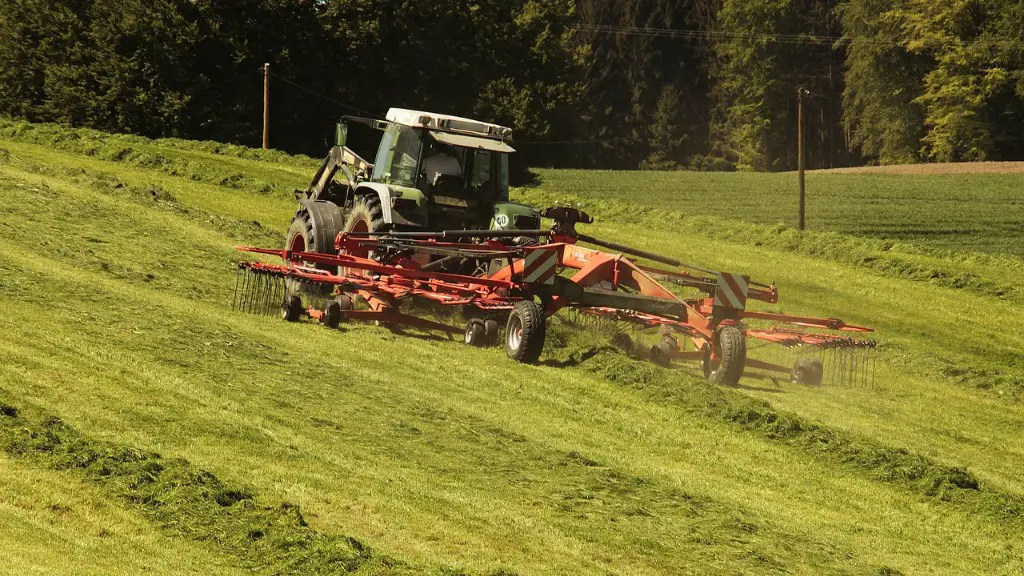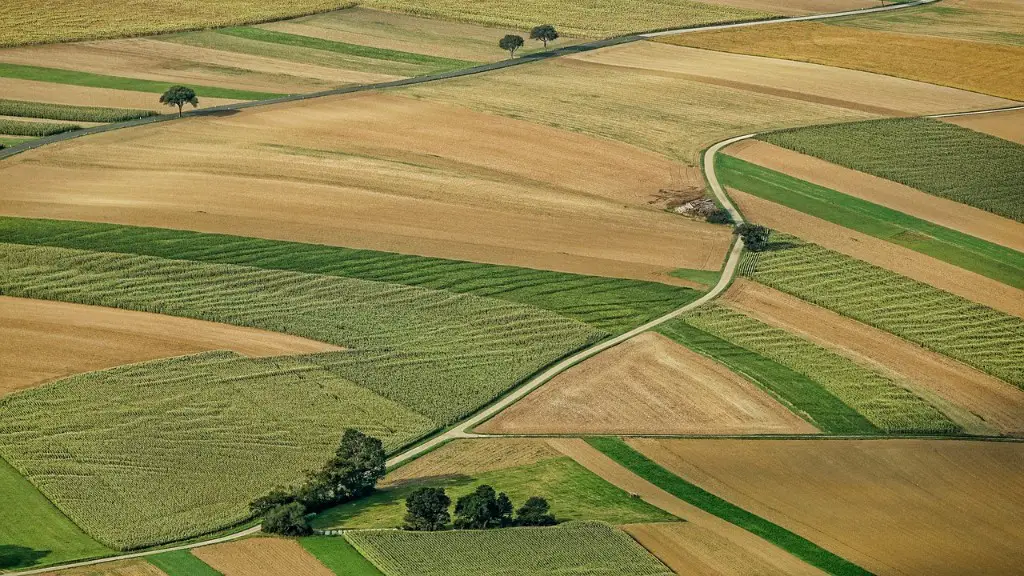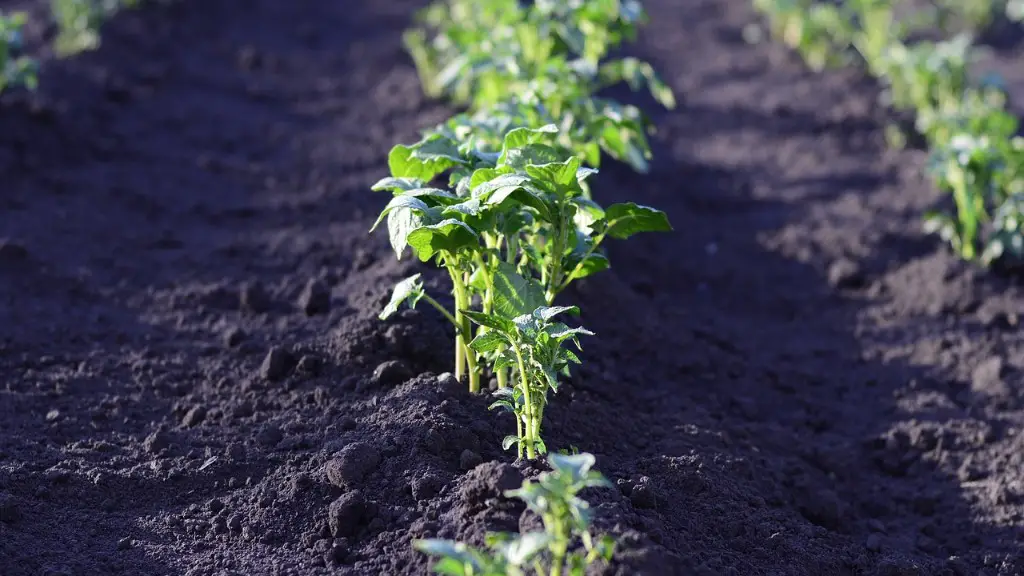African people have always been involved in agriculture. It is a way of life that has been passed down from generation to generation. Today, an estimated 60% of the African population is involved in some form of agriculture. This includes small scale subsistence farming, as well as large commercial operations. Agriculture is the backbone of the African economy, and it is estimated that it employs around 60% of the workforce.
It is difficult to provide a precise answer to this question as available data is somewhat limited and varies greatly depending on the source. However, according to the World Bank, it is estimated that approximately 60% of the African population is employed in the agricultural sector. This figure is based on data from 2010.
What percent of Africa works in agriculture?
In 2020, 438 percent of total employment in Africa was in the agricultural sector. This is a significant increase from 2010, when only 10 percent of employment was in the agricultural sector. The increase in agricultural employment is due to the growing demand for food in Africa, as well as the expansion of the agricultural sector.
The agricultural sector is critical to the economies of all African countries because 70% of Africans depend on agriculture for livelihoods. The sector employs a large number of people and contributes significantly to the gross domestic product of many countries. In addition, the sector is a major source of export earnings for many countries.
What percent of Africans are farmers
Subsistence farming is a type of agriculture where farmers grow crops and raise livestock for their own needs, rather than for sale. It is typically found in developing countries with poor infrastructure and limited access to markets. Roughly 65 percent of Africa’s population relies on subsistence farming. While this type of agriculture can be subsistence farming can be a way of life for many people, it often leads to poverty and hunger.
Africa’s agricultural sector is of critical importance to the continent’s social and economic development. More than 60 percent of the population of sub-Saharan Africa is smallholder farmers, and about 23 percent of sub-Saharan Africa’s GDP comes from agriculture.
Despite its importance, African agriculture faces a number of challenges. The continent has high levels of food insecurity, with about 25 percent of the population estimated to be undernourished. Agricultural productivity is also relatively low, due to factors such as low levels of technology and inputs, poor soil fertility, and limited access to markets.
There is a need for greater investment in African agriculture in order to boost productivity and food security. This includes investments in research and development, as well as in infrastructure and other support services. In addition, policies and programmes that promote smallholder farmers’ access to markets, technology, and finance are critical.
What do most Africans do for a living?
Africa’s agriculture sector is the largest in the world, accounting for 15% of the continent’s GDP. The sector employs over 60% of Africa’s workforce and is a major contributor to the continent’s exports. Agriculture in Africa is characterized by small-scale farms, often managed by women, and a lack of mechanization and technology. The sector is also vulnerable to climate change, which is expected to have a negative impact on crop yields and livestock production in the coming years.
Africa’s climate greatly influences the continent’s agriculture, which is the single most important economic activity. Agriculture employs two-thirds of the continent’s working population and contributes 20 to 60 percent of every country’s gross domestic product (GDP). The climate affects the types of crops that can be grown, the time of year they can be grown, and the amount of water they need. All of these factors greatly influence the continent’s food security and economic stability.
How big is the agriculture industry in Africa?
Africa’s economy heavily relies on agriculture even though the sector only makes up a small portion of the GDP. The majority of the population is employed in the primary sector, with the number of people employed in agriculture growing from around 197 million in 2011 to 226 million in 2021. In 2020, agriculture employed approximately 44 percent of Africa’s working population. The sector is vital to the continent’s food security and poverty reduction efforts. Despite the significant contribution of agriculture to Africa’s economy, the sector faces numerous challenges, such as climate change, land degradation, and lack of access to technology and information.
The agriculture sector plays a vital role in the Indian economy, providing employment to over 151 million people. Approximately 60 percent of the population works in the industry, contributing about 18 percent to the country’s GDP. The sector is a major source of income for small and marginal farmers, and also supports the livelihood of landless workers. In recent years, the government has taken several initiatives to promote the agricultural sector, including providing subsidies and loans, and developing infrastructure. The sector faces several challenges, including a lack of technological advancements, lack of skilled manpower, and limited access to markets.
What percentage of people do agriculture
The agricultural and food sectors are a critical part of the US economy, employing over 211 million Americans. On-farm employment accounts for about 26 million of these jobs, or 13 percent of total US employment. The sector is expected to continue to grow in the coming years, providing critical economic opportunities for American workers.
The most common ethnicity among farmers is White, which makes up 864% of all farmers. Comparatively, there are 76% of the Hispanic or Latino ethnicity and 29% of the Unknown ethnicity.
Why is Africa poor in agriculture?
In the 1960s, Africa was a self-sufficient continent, but today it is a net food importer, with a handful of countries facing severe food shortages from drought, desertification, climate change and wars. These shortages are having a devastating impact on the lives of millions of people across the continent.
There are many factors contributing to this alarming situation, including population growth, climate change and the increasing incidence of drought and desertification. In addition, Africa’s infrastructure is often inadequate to cope with the demands of a growing population, and many countries are also embroiled in conflict, which further exacerbates the food security situation.
The situation is particularly dire in countries like Somalia, Ethiopia and South Sudan, where millions of people are already facing starvation. In Somalia, for example, a prolonged drought has left over six million people in need of humanitarian assistance, with nearly a million people at risk of starvation.
The international community must take urgent action to address this growing crisis, and support African countries to build their resilience to withstand the impacts of climate change, conflict and other shocks.
China is one of the world’s leading agricultural producers, with a total output of grains, vegetables, fruits, eggs, and poultry that is only exceeded by the United States. The country has a tenth of the world’s arable land but produces a quarter of the global grain output. China also leads the world in the production of soybeans, peanuts, cabbage, sweet potatoes, and tobacco.
Why is farming so difficult in Africa
Many African farmers lack the basic things many farmers outside the region take for granted, like access to improved crop varieties, fertilizers, and irrigation Although some progress has been made, addressing these weaknesses by themselves is not enough. African farmers need more support in order to be successful. One way to provide this support is by increasing access to information and resources. African farmers also need more access to markets, so that they can sell their products.
Africa’s agriculture sector is in dire need of productivity improvements. Crop yields have lagged behind the rest of the world, and more than half of the continent’s workforce is employed in agriculture. The labour productivity in Africa is very low, with the agriculture ‘value added’ per worker in Sub-Saharan Africa being less than half the global average. Boosting productivity in Africa’s agriculture sector is crucial to improving the continent’s economic prospects.
What is the average income of farmers in Africa?
Farming households around the world make about half the household income compared to non-farming households annually. Farming households bring in an annual income of $2,989 (international dollars) on average, while non-farming households make $4,991 annually on average.
Africa’s agriculture is by far the single most important economic activity on the continent. It provides employment for about two-thirds of the continent’s working population and for each country contributes an average of 30 to 60 percent of gross domestic product and about 30 percent of the value of exports. Agriculture is essential to Africa’s economy and its development.
Final Words
It is difficult to give a precise answer to this question as there is a great deal of variation across Africa. However, it is estimated that between 60 and 70 percent of the African workforce is employed in the agricultural sector.
The majority of African people work in agriculture. In fact, agriculture employs more than 60% of the African workforce. African agriculture is critical to the continent’s economy, producing a significant portion of the world’s food. Despite its importance, African agriculture is often underfunded and undervalued. To address the challenges facing African agriculture, policymakers and development organizations must invest in the sector and support small-scale farmers.





